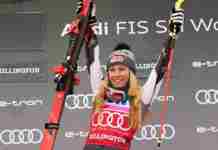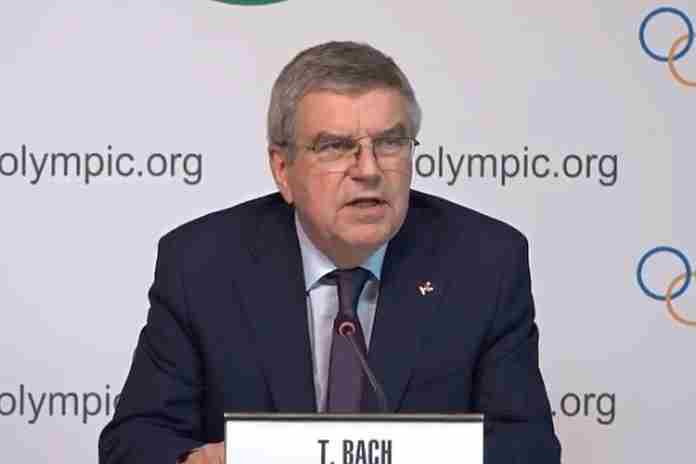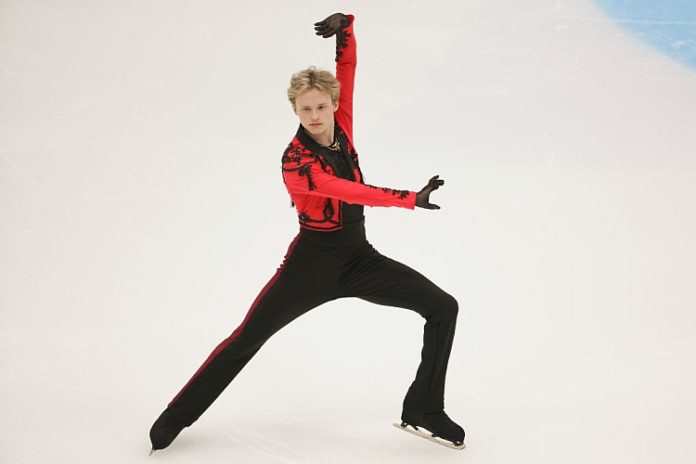★ The Sports Examiner: Chronicling the key competitive, economic and political forces shaping elite sport and the Olympic Movement.★
★ To get The Sports Examiner by e-mail: sign up here! ★
Thomas Bach, the 69-year-old German two-term President of the International Olympic Committee, has completely reshaped the Olympic Movement, the Olympic Games and international sport in his 10 years in office.
He placed perhaps his finishing touch on Friday with the announcement of the specific conditions under which Russian and Belarusian athletes will be able to compete as “neutrals” at the 2024 Olympic Games in Paris:
● Individual Russian and Belarusian athletes who qualify through the existing procedures of the International Federations will be eligible to compete in Paris IF they meet the IOC’s now-published requirements. No teams will be allowed.
● This includes a neutral uniform without any national markings, no flags to represent the athletes and no anthem to be played for them at any ceremony.
● “Athletes who actively support the war will not be eligible to be entered or to compete,” and the IOC will “seek an independent evaluation of the eligibility of each qualified AIN proposed by the IF, and their support personnel.” And all anti-doping precautions will have to be taken.
The IOC’s statement and the six pages of regulations that were produced will restrict the Russian and Belarusian presence in Paris severely. However, their mere presence will create continuing turmoil, especially in Europe and in other countries that are outraged by any accommodation of Russian nations in view of the continuing war against Ukraine, aided by its ally, Belarus.
Bach understands the tensions he has created – and have no doubt that he is at the forefront of these decisions – and while brushing them aside as inconsistent with the “IOC’s values” – his words, heard over and over again – he and his organization are unapologetic.
Sort of.
In the fourth paragraph of Friday’s announcement, made just three days after the Olympic Summit, where the concept of Russian and Belarusian participation was confirmed, but without the details that have now been provided, this:
“Only a very limited number of athletes will qualify through the existing qualification systems of the IFs. Among the 4,600 athletes from around the world who have qualified for Paris 2024 so far, there are only 11 Individual Neutral Athletes (eight with a Russian passport plus three with a Belarusian passport). In comparison, to date more than 60 Ukrainian athletes have qualified for Paris 2024.”
And the IOC’s very capable communications team reiterated with enthusiastic but calm language what it sells as validations of their stance, from international groups such as the United Nations, the G-20, the Non-Aligned Movement and that “At least 3,000 Ukrainian athletes and other members of the Olympic community of Ukraine have benefitted from the IOC Solidarity Fund.”
That’s as close to an apology as the IOC will make for its position. But the position is not about to change. Bach insists on it as a “demonstration” of the unity which the Olympic Movement brings to the world once every four years.
But questions large and small remain to be answered, with each situation a possible flashpoint between now and Paris 2024, or during them Games period:
● How will these athletes be accommodated in the Olympic Village in Paris, where Ukrainian athletes will also be living, eating and training?
● Will these athletes participate in the Opening Ceremony on the Seine River, further increasing the already extreme security issues? The IOC’s regulations specify a white flag with a newly-created “AIN” symbol on it. Imagine the crowd reactions every time that shows up in Paris.
● The conduct of the International Federations must also be examined. Questions have been raised about the “eligibility” of so-called “neutrals” in judo, taekwondo and wrestling. World Rowing somehow thinks that Pairs – two athletes in a boat – is an individual event; will that be allowed?
And the ability of Russian and Belarusian athletes to compete will vary by sport. There will be none in track & field; World Athletics President Sebastian Coe (GBR) said on Friday:
“This is a decision that was supported at the Olympic Summit, which I attended. International federations have the priority right to make their own assessment of the selection of athletes. We have a clear position that has not changed.
“You can see Russian athletes at the Olympic Games in Paris. It’s just not going to happen in athletics. This position that our sport has adopted has not changed in any way. There is nothing to add here, this is our position, it was accepted almost unanimously by members of the athletics family.”
At his term as President of the IOC has passed its 10-year anniversary, we can now recognize “Thomas Bach’s Ten Commandments” for the Olympic Movement:
● Bidding for Olympic Games should not create losers, who waste millions for absolutely no return. The IOC now selects its hosts through a mostly-private discussion process.
● An Olympic Games must conform to the city, region or country where it is held, and not require unnecessary expenditures.
● If is considered best if no new venues or permanent constructions are undertaken for a Games, unless as part of an otherwise useful local development plan.
● Sport must go to where the people are, not require people to come to it. This was successfully demonstrated at the 2018 Youth Olympic Games in Buenos Aires at the free, open-air opening ceremony at the iconic Obelisco, and transferred to Paris 2024 with its opening on the Seine.
● Sport must appeal to youth, or in Olympic-speak, “be more urban” and “youth-oriented.” Thus the inclusion to the permanent program of skateboarding, sport climbing and surfing from 2028 and the IOC moving toward its own “e-sport Olympics.”
● Sport governance through the “solidarity model,” in which money is distributed through National Olympic Committees for development projects and athlete support, rather than simply paying athletes directly through prize money.
● Strict requirements for gender equality in terms of the number of men’s and women’s athletes competing, which will be reached at Paris 2024.
● Strenuous anti-doping measures, preferably handled by an independent agency; the IOC created the International testing Agency in 2018, which has quickly absorbed most of the anti-doping programming for Olympic-sport federations.
● Athletes are not responsible for the actions of their government, so long as they are not affiliated with their government. (Overlooked is the fact that governments fund every National Olympic Committee in the world except in the U.S.)
● The IOC should respect, follow and implement the directives and regulations of the United Nations.
These directives are pure Bach and have reversed decades of IOC preferences and policy, for example, the total participation bans on South Africa from 1970-91 and Rhodesia (now Zimbabwe) from the Olympic Movement from 1975-80 for their governmental apartheid policies. That approach apparently does not apply any more.
Bach’s second term will end in 2025, and there are members who are trying to convince him to stay on for another term to 2029. He has not said whether he will or won’t accept the invitation, and support the required changes to the Olympic Charter.
His decision will once again revise his legacy, already secure as one of the most consequential leaders of the International Olympic Committee, for better in some areas, but not in others.
Rich Perelman
Editor
You can receive our exclusive TSX Report by e-mail by clicking here. You can also refer a friend by clicking here, and can donate here to keep this site going.
For our updated, 850-event International Sports Calendar (no. 4) for 2023 and beyond, by date and by sport, click here!























